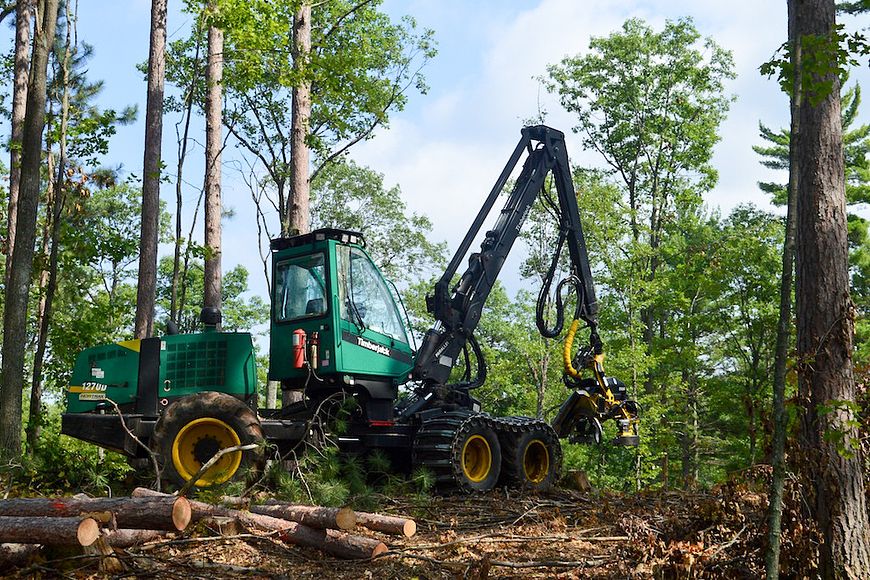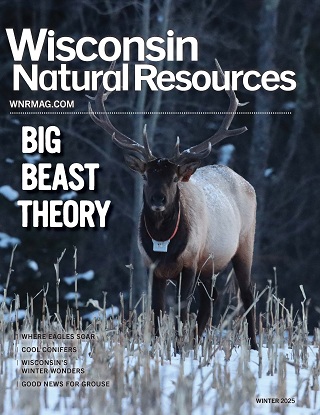Contact: Scott Lyon, DNR Forest Products Team Leader
Scott.Lyon@wisconsin.gov or 920-360-3722
Celebrate Wisconsin Forest Products With The DNR
National Forest Products Week Is Oct. 20-26
 A $37.8 billion annual contribution to Wisconsin’s economy starts with the sustainable management and harvest of the 17 million acres of forests throughout the state.
Photo credit: Wisconsin DNR
A $37.8 billion annual contribution to Wisconsin’s economy starts with the sustainable management and harvest of the 17 million acres of forests throughout the state.
Photo credit: Wisconsin DNR
MADISON, Wis. – The Wisconsin Department of Natural Resources (DNR) joins the nation in celebrating Forest Products Week from Oct. 20-26, 2024. The week recognizes the people who work in and care for our forests, the industry workers who make the forest products we depend on and the many ways forest products contribute to Wisconsin’s economy and quality of life.
Wisconsin’s forest products industry contributes $37.8 billion in total economic value to the state and ranks second nationally for production value. The industry also ranks sixth nationally in generating forestry employment, with more than 123,000 jobs in the state.
Forest products are not only important to Wisconsin’s economy, but they positively impact our lives.
“From paper products such as food packaging, fine writing paper and toilet paper to lumber used to build homes, flooring and furniture, we depend on forest products daily,” said Scott Lyon, DNR forest products team leader.
Forest products also play a vital role in mitigating the changing climate. Trees store carbon, offsetting greenhouse gas emissions while they are growing, and they retain the stored carbon throughout the useful life of forest products.
Forest Products Week recognizes the industry workers who harvest, transport and transform logs into valuable products and the woodland owners and professional foresters who care for the 17 million acres of forests in Wisconsin to ensure that they provide raw forest materials while also offering recreational opportunities and ecosystem services, such as clean water and air.
“Through the use of sustainable forestry practices, trees are grown and harvested responsibly, providing the economic, social and ecological benefits of forest products today and for future generations,” said Carmen Hardin, DNR Applied Forestry Bureau Director.
Learn more about the economic importance of Wisconsin forest products on the DNR website.

